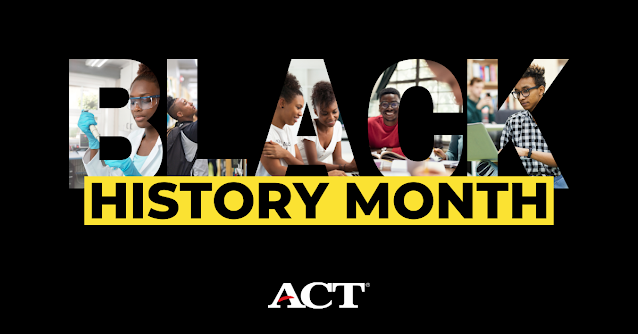This Black History Month, ACT is revisiting our recent research findings in which African American students stood out from their peers in ways that are promising for their education and career success. From preparing for college to looking far into the future, Black students are identifying and seizing opportunities to fulfill their potential.
Last year, research on disparities in college preparation opportunities for students related to the pandemic, led by Dr. Joyce Z. Schnieders, revealed a direct link between participating in college preparation activities and the college application process. Black students were more likely to participate in college preparation activities than white students, and – consistent with other research on the topic –their engagement in these activities did not appear to be significantly disrupted by the pandemic. This indicates that Black students either started the college preparation process earlier or they were more active in these activities.
College preparation activities are the first steps on a student’s college-going journey, and the report showed how participating in these activities is directly linked to positive college application behaviors. The findings affirm that coordinated college application efforts are providing Black students with what they need to be successful and feel prepared for the college-going process. This is critical as enrollment estimates indicate that the number of Black undergraduate college students declined by 6.9% between fall 2020 and fall 2022, with the number of Black freshmen shrinking by 7.4%.
In another report, ACT Lead Research Scientist Jeff Schiel found that high school students were generally optimistic about the future, and Black students especially so. Black students reported higher estimated chances, on average, of experiencing 15 of 17 future life outcomes -- including having a well-paying career, owning a home, and having good health – than did students in other racial/ethnic groups. And irrespective of family income category, Black students reported the highest estimates, on average, of the chances of having a better life than their parents had or of their children having a better life than they have had. In fact, for all future outcomes, Black students from low-income families were more optimistic about their futures than were students of other races/ethnicities in that same income category.
For nine of the future outcomes – career that pays well, career you enjoy, steady employment during career, live wherever you want to in the country, hobbies you enjoy, financial resources to retire comfortably, better life than parents had, children will have a better life, and life turns out well overall – Black students had statistically significantly higher estimates, on average, of experiencing each outcome than did students of other races/ethnicities.
It is reassuring that -- despite the challenges and stress of the pandemic – Black high school students are hopeful of achieving the kinds of outcomes that define a successful life. However, we also know from other ACT research that Black students reported more challenges relative to students of other racial/ethnic groups during the pandemic: higher levels of distress for problems with neighborhood violence, bullying, cyberbullying, microaggressions, and discrimination.
As a research-based organization, ACT will continue to examine our wealth of data to help inform policies and practices for helping all students navigate the journey through education and into the workplace. Understanding how Black students perceive and prepare for the future can help educators, policymakers, counselors, and other advocates support them along the way.
